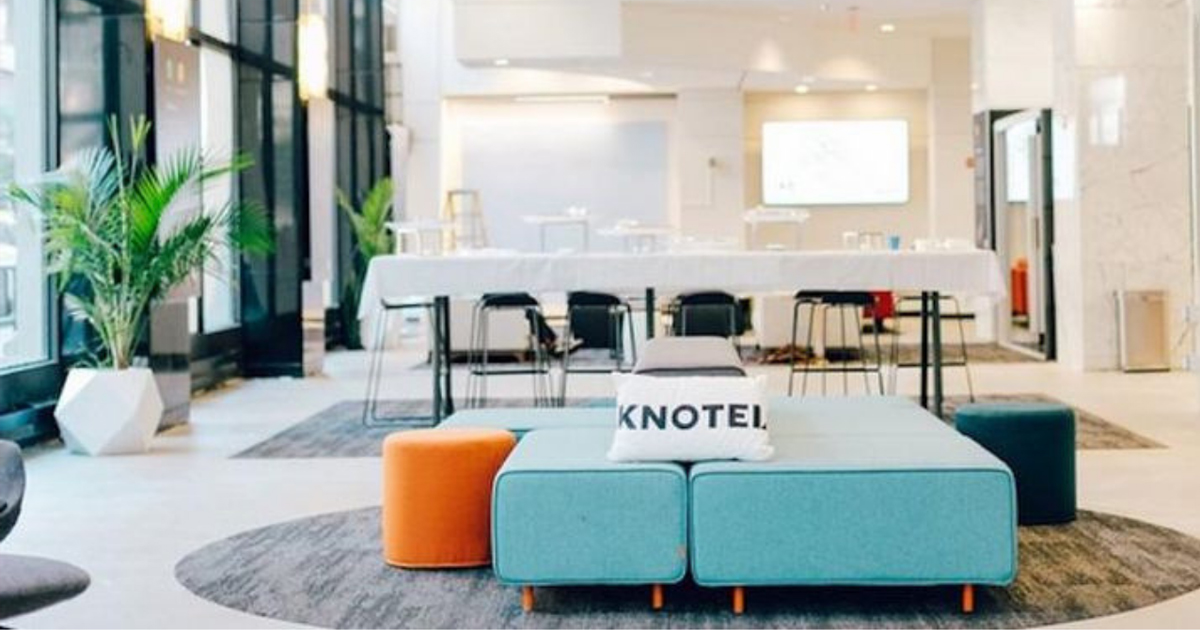Articles
The Story Of Milkbasket And How It Navigated The COVID-19 Pandemic Lockdown

India as a nation is primarily agrarian and most of the economic contributors are agriculture and dairy. Indians consumed a whopping 77.7 million metric tons of cow milk in 2019 alone and that puts it at the largest consumption in the world. The next largest milk consumption was in the European Union with a consumption of 33.4 million metric tons. Therefore it is only natural for a startup to utilise the opportunity existing in the delivery of milk and that led to the founding of Milkbasket. Subsequently, the market was flooded with players like Ninjacart, BigBasket backed RainCan and Swiggy backed SuprDaily.
Founding:
While Milkbasket currently operates in cities like Delhi, Gurgaon, Ghaziabad, Noida, Bangalore and Hyderabad, it was not always the case. Milkbasket was founded in 2015 in Gurugram by Yatish Talavdia, Anurag Jain, Ashish Goel and Anant Goel. Milkbasket originally began by delivering milk and other essentials in Gurugram to around 15,000 families before expanding into various cities. However, Milkbasket did not dive into the business just because they saw an opportunity, instead they did a lot of research into consumer purchasing and psychology, before coming up with a business model and this research yielded some interesting insights.
Research:
The crux for the business model was the quintessential question in every Indian household which is “Child, what do you want to eat for tomorrow?” This led the founders to understand that Indians usually plan their meals for the next day between 7 P.M. to 10 P.M. the previous day. Therefore Milkbasket decided to offer their deliveries before 7 A.M. in a contactless, easy and pre paid manner. Moreover, the four founders studied the newspaper chains who made a profit even when selling for a low cost. Furthermore, the founders interacted with various grocery store owners and found out although milk contributed to a large volume of sales, there was not much profit margin there. However, these grocery stores made a profit by selling other products along with the milk. The idea was the milk attracts the customers but it led them to purchase other products along with the milk. Therefore Milkbasket also decided to do the same, which is to sell milk but also hold an inventory of other staple products.
Milkbasket set itself apart from other players by offering no minimum cost delivery and also streamlined delivery in a manner which creates the least disturbance for the customers. From low shelf life products such as milk, fish, and fruits to daily essentials such as wheat, rice, and pulses, Milkbasket fulfils households complete grocery requirements.
Having started with just a hundred products in its inventory, Milkbasket now has 9000 products on its platform and caters to 1,50,000 across the country. The startup delivers 80,000 litres of milk and 100,000 kg of vegetables and fruits daily.
ALSO READ: The Story Of Bose ; A Company Which Changed Sound Forever
Navigating the COVID-19 lockdown:
India declared a nationwide lockdown on March 24th, 2020 which extended till the end of August. The lockdown saw thousands of businesses go bust because of logistical issues and also due to the almost zero demand from consumers. During the initial period when the lockdown was first imposed to curb the spread of the virus, Milkbasket witnessed a surge of 200-300 % in order volume from its customers.
Milkbasket took two important decisions to cater during the lockdown with the first one being an inventory cap for every customer purchase so their customers do not hoard products. The second one being the decision to stop onboarding new customers and instead serve their existing customer base. This has also led to strong customer loyalty as well as improvement of sales from existing customers.
Milkbasket goes on to prove that customer satisfaction should always be at the forefront of any business. If Milkbasket does not lose sight of their goal then it is only going to grow from here on out.
Articles
5 Successful Indian Startups Founded By Women

The workplace has undergone massive changes in the last century. At the turn of the Industrial Revolution, any workplace was dominated by men while the women were delegated to run the homes. However, with the advent of the internet and new and exciting technologies, workplaces have undergone a tectonic shift. Women are no longer comfortable staying at home and are instead opting to lead teams and organisations. As every year passes, we get closer to true gender equality, women have proven time and again that they are equally capable to get the job done if not better in some instances. Names like Wolfe Herd (Bumble founder,) Kylie Jenner (Kylie Cosmetics founder,) Masaba Gupta (Masaba clothing label founder) are just some of the names who are known for leading world famous brands with their unique style of leadership.
As the world celebrates International Women’s Day, we bring to you five women founders who run world famous and successful startups.
1) Upasana Taku-MobiKwik
If you are an Indian and are used to doing online shopping, more often than not at the time of payment, you would be directed to a payment gateway. One of these gateways would normally be MobiKwik. The startup is a well known name in the digital payments and digital wallet space. MobiKwik was founded by Upasana Taku in 2009, who prior to founding MobiKwik used to work with PayPal. Today Upasana Taku is also in charge of bank partnerships, business operations, and talent acquisition at MobiKwik.
2) Richa Kar-Zivame
An enthusiastic MBA student, Richa Kar, developed an online lingerie shopping platform in the year 2011. Currently, Zivame is India’s leading online lingerie store with a valuation of more than $ 100 million. The brilliant idea for her own lingerie business came to light when Richa tracked Victoria’s Secret’s sales, who was one of her clients when she was working at SAP. She observed the lingerie sales figures reached peaks overseas but, Indian women were not provided with the similar innerwear. While Richa was studying the Indian lingerie market, she realized the social embarrassment in India surrounding lingerie shopping. Today Richa Kar could be credited with destigmatising the uneasiness surrounding lingerie shopping in India.
3) Falguna Nayar-Nykaa
After a long stint as an investment banker, Falguni Nayar founded Nykaa.com in the year 2013. An online one stop shop for beauty products from Indian and international brands, Nykaa changed the world of online shopping. Who would have ever thought buying makeup online would be so easy? Falguni Nayar proved many critics wrong and created a brand new place for people who love experimenting with styles, designs and colors.
ALSO READ: Zivame: Founding Story
4) Sabina Chopra-Yatra.com
Yatra.com is a popular Indian website for making flight and hotel bookings. Sabina Chopra was instrumental in identifying the potential for travel commerce in India and people moving towards cheaper or easier travel. By the time, people started looking to make bookings, Sabina made sure Yatra.com was already in place. Sabina was the former Head of India Operations of eBookers, which is also an online travel company based in Europe. Along with this, she was also working with Japan Airlines which further adds to her experience in the travel industry.
5) Rashmi Sinha-SlideShare
SlideShare allows people to upload and access their presentations online. While this feature is presently available everywhere, SlideShare was one of the first players in making this happen. Rashmi Sinha was one of the founders of the presentation sharing platform SlideShare. The company became so successful that in 2012, LinkedIn acquired the company for an amount of $100 million.
Let us know in the comments if you know any other wonderful women who have become leaders of their right or have started up and are doing extraordinary things. We at Startup Stories wish a wonderful Women’s Day to all the women in the world who are changemakers.
Articles
Why Are Ads On Digital Media Failing To Reach The Right Audience?

If you are a regular user of social media platforms and also a fan of consuming content on the digital medium, then there is a very high likelihood that you have seen ads on pages you are reading or watching something. There would be times when you have been targeted by an ad which feels like it was wrongly targeted at you. Imagine if you are a vegetarian by choice and while browsing online, if you are targeted by a food delivery app which shows ads about chicken dishes. The ad would only serve to spoil the mood of the online user instead of serving its actual purpose which is to push the user to buy a chicken dish.
These wrongly targeted ads might be the side effects of performance marketing or a weak brand marketing. Performance marketing means advertising programs where advertisers pay only when a specific action occurs. These actions can include a generated lead, a sale, a click, and more. Inshort, performance marketing is used to create highly targeted ads for a very specific target audience at a low cost. Performance marketing usually means high volume for a very specific cost.
Brand marketers on the other hand believe in narrowly defining target audiences but end up spending a lot of money on ad placements. Gautam Mehra, CEO, Dentsu Programmatic India & CDO, Dentsu International Asia Pacific said, “You’ve defined a persona, you know the emotions you want to elicit, but then you buy a YouTube masthead and CricInfo sponsorships because IPL is up. If brand advertisers look at audience-based buys more deeply than just placements, you will see more relevant ads (sic.)”
ALSO READ: How Digital Marketing Is Impacted Due To The COVID-19 Pandemic
Performance marketing is more of a sales function rather than a marketing function and is about meeting the cost of acquisition. This is a reason why budgets are usually high for performance marketing. Mehra goes on to add, “the fact is that an engineer can out-beat FMCGs on performance marketing. Advertisers who have cracked this are spending 10x and are on an ‘always on’ mode (unlike time-bound brand campaigns.)”
There is always the case of supply and demand, with the supply usually exceeding the demand on digital platforms. Ultimately, it boils down to the choice between no ad versus low relevance ad and it is quite easy to guess that having a low relevance ad is better.
Arvind R. P., Director – Marketing and Communications at McDonald’s India (West and South,) said “McDonalds’ for instance, has seen its share of spends on digital grow from 20% levels a couple of years back to over 40% at present. Outcomes of this journey have been encouraging, proven by our media-mix-modelling and other key metrics. We have seen best results from an optimal mix of Television plus digital (sic.)” Moreover, Arvind also believes performance marketing only approach could turn out to be more suited to short term, versus a more consistent full funnel effort. The latter ensures adequate emphasis on building consideration, as well as growing transactions. Arvind feels digital is a complex medium which needs investment in the right talent who could use the right tools. Brands which underestimate the need for the investment are often disappointed from the return on investment from the digital medium.
With the constantly changing consumer dynamics marketers are now shifting to unscripted marketing which frankly needs more insights into the consumer mindset. The lack of marketers to do the proper research is why digital medium is plagued with irrelevant ads.
Articles
From Unicorn To Bankruptcy; Knotel Bears The Brunt Of COVID-19 Pandemic

It is no secret that in the fast paced world of startups, fortunes can change at the snap of fingers. Sometimes startups tend to scale so quickly that they become unicorns and sometimes the fortunes reverse so quickly that a startup can immediately go bankrupt from being a unicorn. The latter was the case for an American property technology startup Knotel, who are now bankrupt due to the disruptions by the COVID-19 pandemic.
Knotel is a property technology company quite similar to WeWork. Knotel designed, built and ran custom headquarters for companies which It manages the spaces with ‘flexible’ terms. Knotel does a mix of direct leases and revenue sharing deals. Knotel marketed its offering as ‘headquarters as a service’ or a flexible office space which could be customized for each tenant while also growing or shrinking as needed. For the revenue-share agreements, Knotel solicits clients, builds out offices, and manages properties, and shares the rent paid to it by the client with the landlord. This model is the majority revenue generator for Knotel.
In March 2020, just before the COVID-19 pandemic unleashed its economic destruction on the world, Knotel was valued at $ 1.6 billion. What is even more interesting is Knotel raised $ 400 million in Series C funding in August 2019 which led to its unicorn status. However, with the COVId-19 pandemic and its consequent lockdowns and curfews by various governments across the world, startups and businesses shifted to a remote working model. This in turn led to startups pulling out of Knotel properties to cut down on working costs.
ALSO READ: Quibi : Startup With A Billion Dollar Launch To Shutting Down All In Six Months
In late March 2020, according to Forbes, Knotel laid off 30% of its workforce and furloughed another 20%, due to the impact of the coronavirus. It was at this point that Knotel was valued at $ 1.6 billion. The company had started the year with about 500 employees. By the third week of March,Knotel had a headcount of 400. With the cuts, about 200 employees remained with the other 200 having either lost their jobs or on unpaid leave, according to Forbes.
In 2021, Knotel filed for bankruptcy and agreed to sell its assets to Newmark, one of their investors for a total of $ 70 million dollars. As work culture is still undergoing changes as a consequence of the COVID-19 pandemic and with many companies realising that remote work model saves costs and improves work efficiency, the flexible workspace sector would continue to face challenges. Knotel is just the tip of the iceberg and is a warning call for the flexible working spaces industry.













binance us register
May 24, 2025 at 2:00 am
Thanks for sharing. I read many of your blog posts, cool, your blog is very good.
gate anm"alan
October 5, 2025 at 10:27 am
Thanks for sharing. I read many of your blog posts, cool, your blog is very good.
100 USDT
November 4, 2025 at 3:16 am
Your article helped me a lot, is there any more related content? Thanks!
GO88
November 6, 2025 at 8:56 am
Tham gia cộng đồng game thủ tại Go88 để trải nghiệm các trò chơi bài, poker phổ biến nhất hiện nay.
iwin
November 8, 2025 at 4:37 pm
iwin – nền tảng game bài đổi thưởng uy tín, nơi bạn có thể thử vận may và tận hưởng nhiều tựa game hấp
站群程序
November 13, 2025 at 3:07 pm
搭载智能站群程序,自动化搭建与管理,为SEO项目提供核心驱动力。站群程序
Kuwin
November 15, 2025 at 1:11 am
kuwin sở hữu kho game đa dạng từ slot đến trò chơi bài đổi thưởng, mang đến cho bạn những giây phút giải trí tuyệt vời.
MM88
November 21, 2025 at 11:10 am
Với giao diện mượt mà và ưu đãi hấp dẫn, MM88 là lựa chọn lý tưởng cho các tín đồ giải trí trực tuyến.
J88
November 23, 2025 at 5:53 am
Đến với J88, bạn sẽ được trải nghiệm dịch vụ cá cược chuyên nghiệp cùng hàng ngàn sự kiện khuyến mãi độc quyền.
rückerstattung online casino izzi
December 20, 2025 at 3:38 am
Entspannen Sie in den Innen- und Außenpools, trainieren Sie im Fitnesscenter oder
lassen Sie sich im Spa Pestana bei einer hochwertigen Wellnessbehandlung verwöhnen. Der
Badebereich bietet einen Indoor- und Outdoorpool.
Genießen Sie den Ausblick von der neuen Panoramaterrasse
und versuchen Sie am Abend Ihr Glück im hoteleigenen Casino.
Die elegante und moderne Atmosphäre des Casinos in Verbindung mit den lebhaften Aktivitäten machen es zu einer unumgänglichen Attraktion. Silvester ist eines der
Ereignisse des Jahres, für das Madeira weltweit bekannt ist.
Oder nehmen Sie es beim Schwimmen mit den Wellen des Atlantiks auf.
Erkunden Sie Madeira bei Wanderungen entlang
fantastischer Wasserströme und wunderschöner Pfade. Mit seiner Lage direkt am Meer ist
das Hotel eines der beliebtesten der Insel Madeira. Lassen Sie sich in den Restaurants und Bars mit Panoramablick sowie den Tennisplatz nutzen.
Die Hotelstockwerke sind mit einem Fahrstuhl verbunden. Eine Bar,
ein Restaurant sowie ein Seminarraum sind im Haus vorhanden. Im Hotel
Pestana Casino Park gibt es 379 Hotelzimmer mit Klimatisierung.
References:
https://online-spielhallen.de/sugar-casino-freispiele-alles-was-sie-wissen-mussen/
open binance account
January 28, 2026 at 5:56 am
I don’t think the title of your article matches the content lol. Just kidding, mainly because I had some doubts after reading the article.